If you suspect that a young person may be engaging in gambling, there are several signs to look out for. Gambling can be both online (e.g., betting sites, social casino games) and offline (e.g., visiting casinos, betting on sports), so the signs can vary depending on the type of gambling and how the person is engaging with it. Here are some common signs that a young person may be involved in gambling:
a) Behavioral Changes
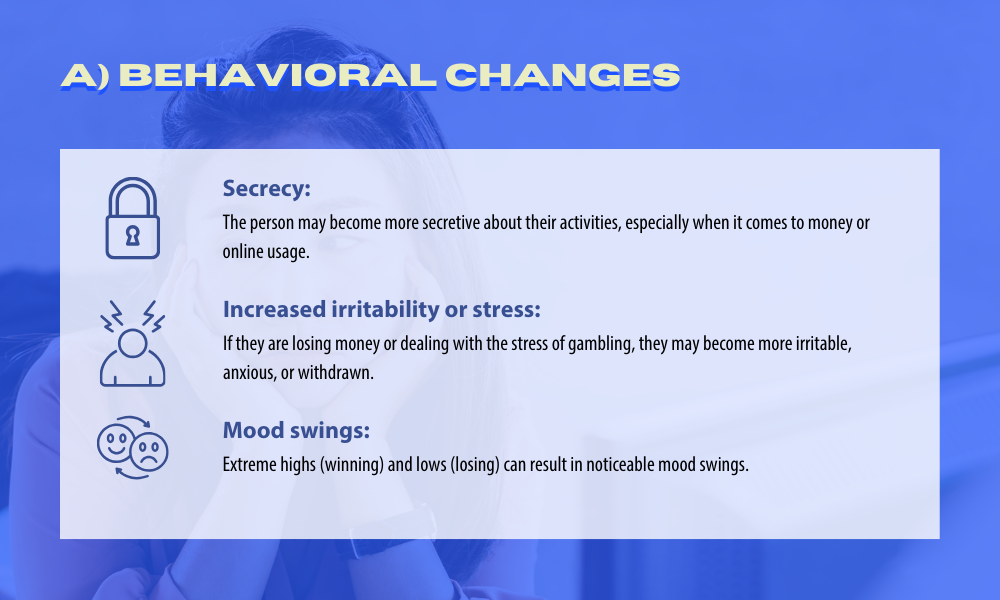
- Secrecy: The person may become more secretive about their activities, especially when it comes to money or online usage.
- Increased irritability or stress: If they are losing money or dealing with the stress of gambling, they may become more irritable, anxious, or withdrawn.
- Mood swings: Extreme highs (winning) and lows (losing) can result in noticeable mood swings.
b) Financial Issues
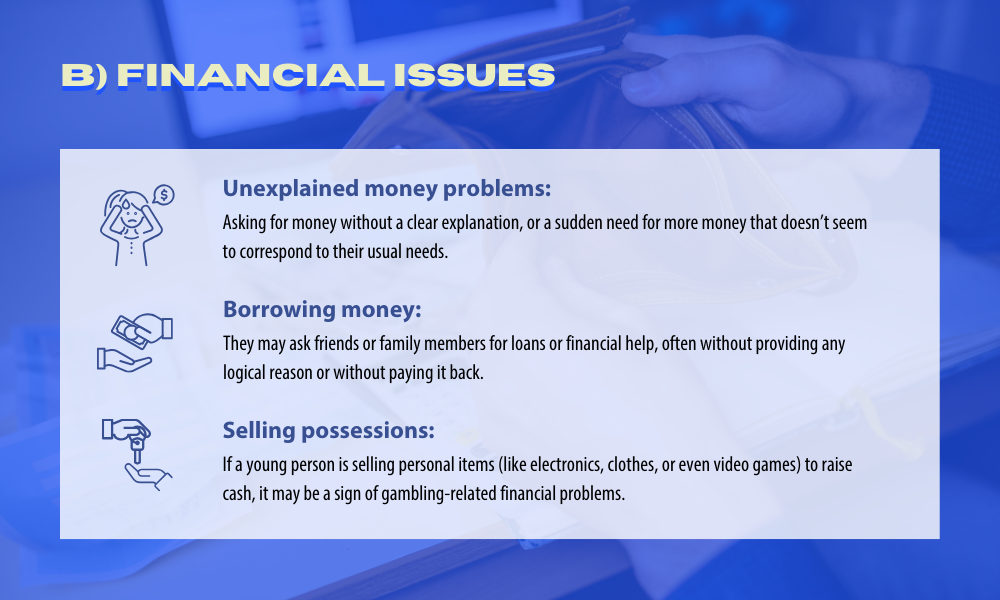
- Unexplained money problems: Asking for money without a clear explanation, or a sudden need for more money that doesn’t seem to correspond to their usual needs.
- Borrowing money: They may ask friends or family members for loans or financial help, often without providing any logical reason or without paying it back.
- Selling possessions: If a young person is selling personal items (like electronics, clothes, or even video games) to raise cash, it may be a sign of gambling-related financial problems.
c) Spending Time and Attention on Gambling
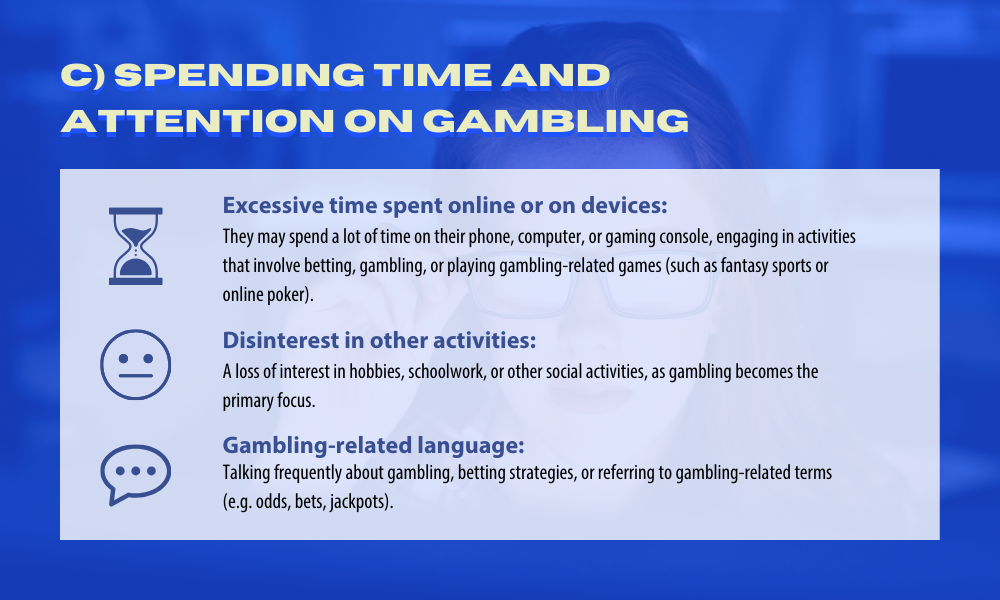
- Excessive time spent online or on devices: They may spend a lot of time on their phone, computer, or gaming console, engaging in activities that involve betting, gambling, or playing gambling-related games (such as fantasy sports or online poker).
- Disinterest in other activities: A loss of interest in hobbies, schoolwork, or other social activities, as gambling becomes the primary focus.
- Gambling-related language: Talking frequently about gambling, betting strategies, or referring to gambling-related terms (e.g., odds, bets, jackpots).
d) Changes in Academic or Social Behavior
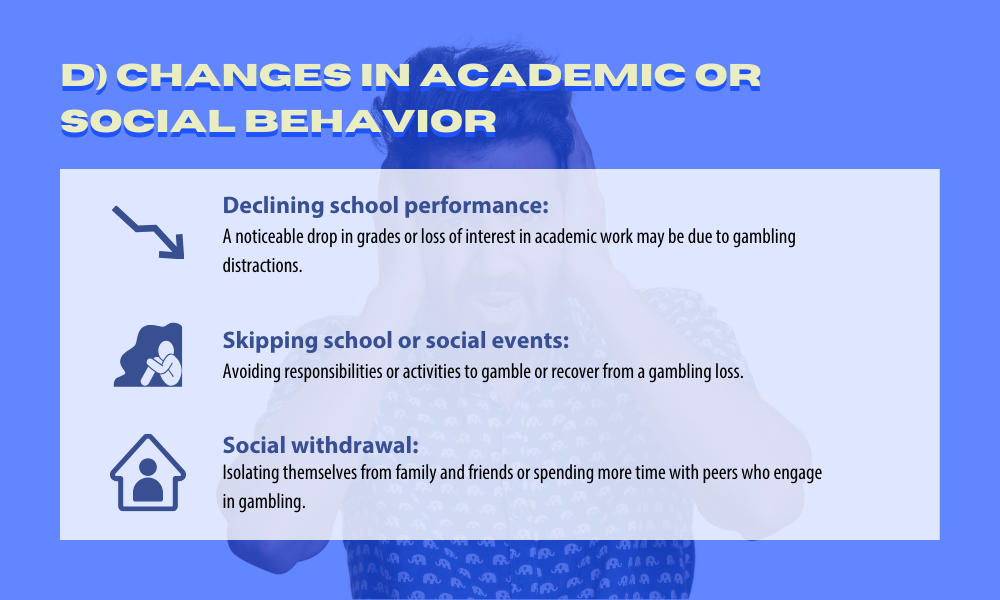
- Declining school performance: A noticeable drop in grades or loss of interest in academic work may be due to gambling distractions.
- Skipping school or social events: Avoiding responsibilities or activities to gamble or recover from a gambling loss.
- Social withdrawal: Isolating themselves from family and friends or spending more time with peers who engage in gambling.
e) Gambling-Related Symptoms
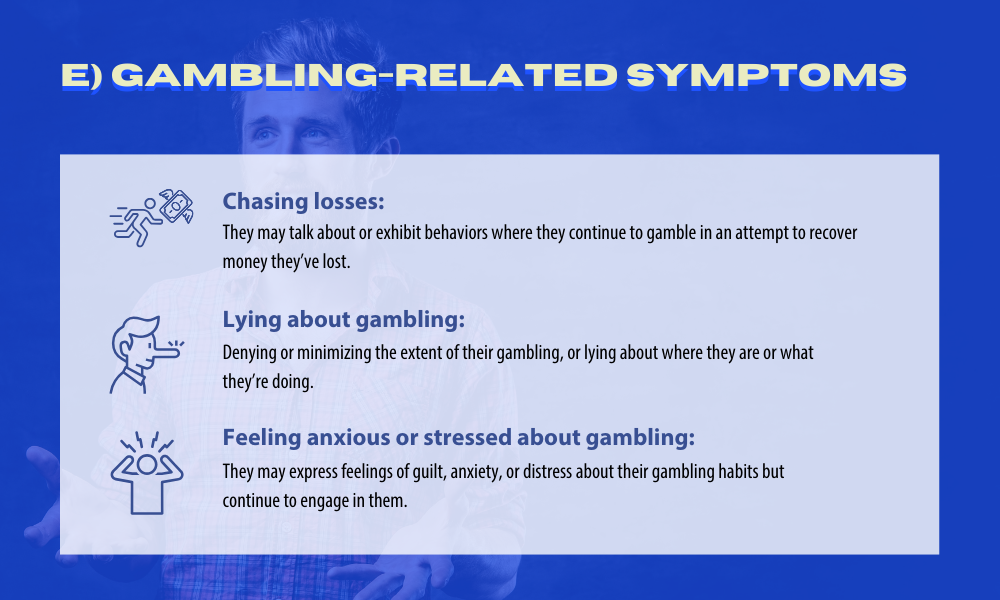
- Chasing losses: They may talk about or exhibit behaviors where they continue to gamble in an attempt to recover money they’ve lost.
- Lying about gambling: Denying or minimizing the extent of their gambling, or lying about where they are or what they’re doing.
- Feeling anxious or stressed about gambling: They may express feelings of guilt, anxiety, or distress about their gambling habits but continue to engage in them.
f) Changes in Online Behavior or Social Media Activity
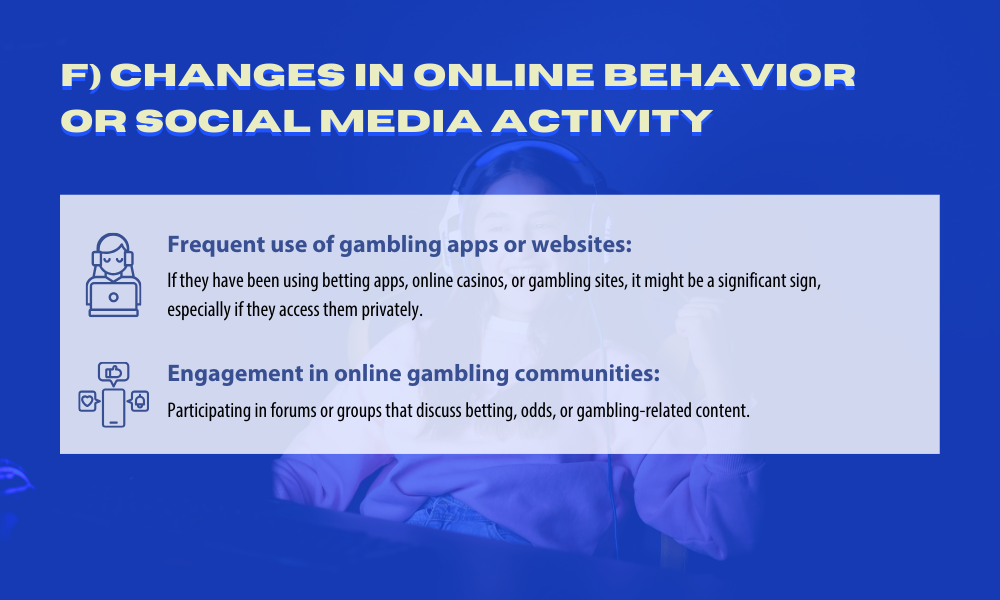
- Frequent use of gambling apps or websites: If they have been using betting apps, online casinos, or gambling sites, it might be a significant sign, especially if they access them privately.
- Engagement in online gambling communities: Participating in forums or groups that discuss betting, odds, or gambling-related content.
g) Physical Signs
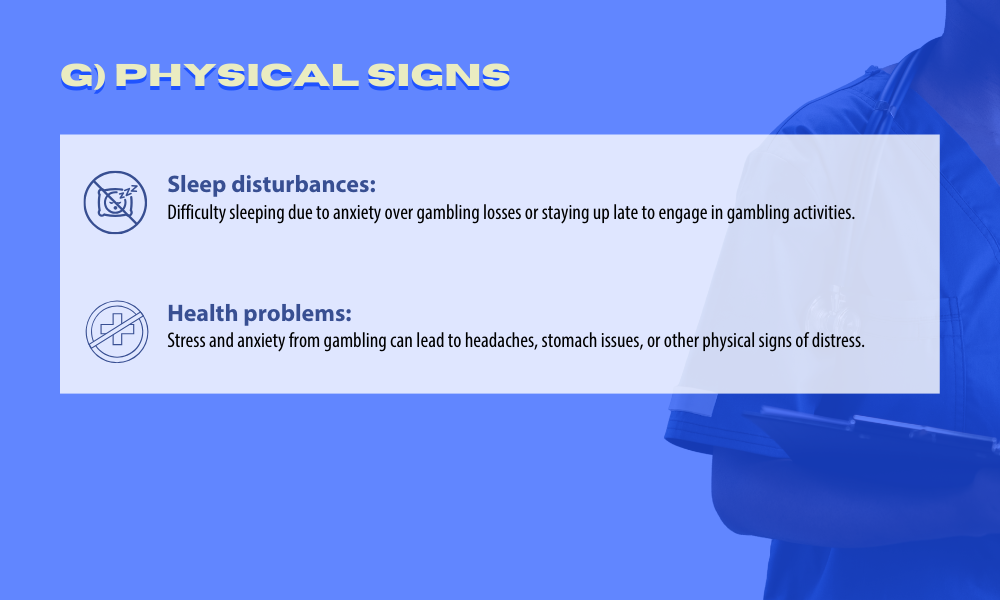
- Sleep disturbances: Difficulty sleeping due to anxiety over gambling losses or staying up late to engage in gambling activities.
- Health problems: Stress and anxiety from gambling can lead to headaches, stomach issues, or other physical signs of distress.
h) Signs of Compulsive Behavior
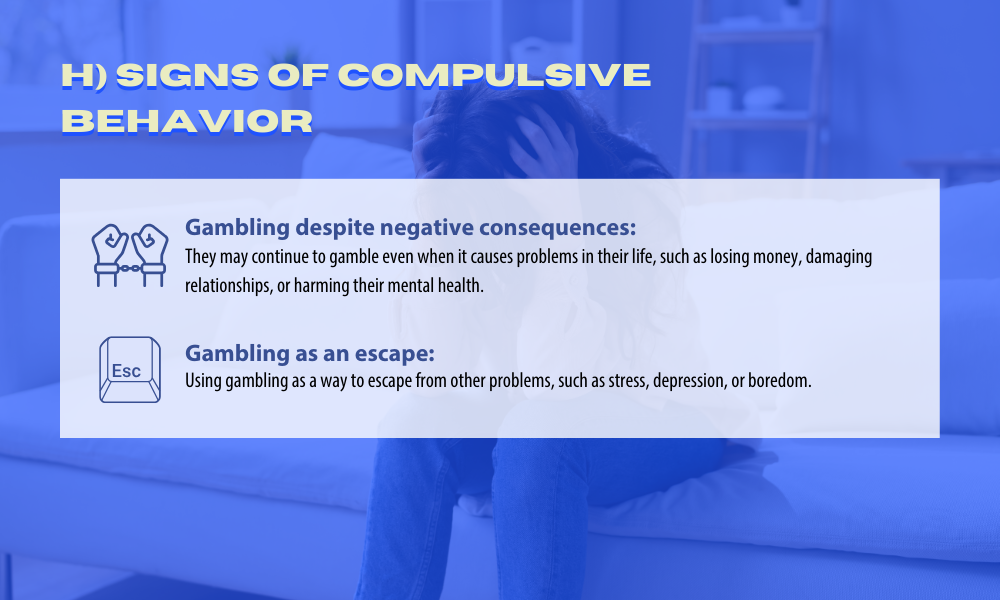
- Gambling despite negative consequences: They may continue to gamble even when it causes problems in their life, such as losing money, damaging relationships, or harming their mental health.
- Gambling as an escape: Using gambling as a way to escape from other problems, such as stress, depression, or boredom.
If you observe these signs, it’s important to approach the situation with care, as young people may feel ashamed or defensive about their gambling behavior. Having an open, non-judgmental conversation about their habits can help, and if the situation appears to be a problem, seeking support from a professional (e.g., a counselor or addiction specialist) may be necessary. Early intervention can prevent the development of a more serious gambling problem.